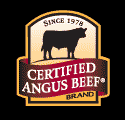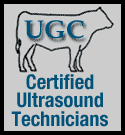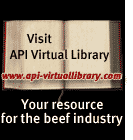Nutrition for the Workhorse
Too-rapid change in horse rations can cause colic.
Horses need more feed to replace energy loss brought about by harsher weather conditions as the temperature turns colder, and that means equine owners need to take steps to ensure colic does not become a problem.
Equine owners must practice sound management in altering their animals' rations if problems with colic or founder are to be avoided, said Dave Freeman, Oklahoma State University (OSU) Cooperative Extension equine specialist.
"Concentrate composition and amounts should be increased gradually over a period of several days, especially if the horses are already consuming large quantities of grain," Freeman said.
Many concentrates — grain mixes — will have significant levels of soluble carbohydrates, which are efficient providers of energy.
"However, eating too much of these compounds in one meal is a significant contributor to the frequency of colic and founder in horses," he said.
General guideline
One general guideline is to limit grain feedings to maximum single meal intakes of around 5 pounds (lb.) per 1,000 lb. of body weight.
"Of course, some concentrates are less energy dense than others, so following recommended intake levels on feed bags is a good practice," Freeman said.
Gradually increasing portions of grain mixes over several days when conditions require horses to need significant increases in energy intake is an added precaution against colic, especially when horses are not accustomed to eating concentrates.
Freeman said horses may suffer from colic if ration changes occur too rapidly.
A horse's anatomy makes the animal very susceptible to colic, an acute abdominal pain caused by various abnormal conditions. Nutritional causes of colic include mismanagement such as abrupt changes in diet, consumption of moldy grain or hay, overfeeding energy at a single feeding, or improper digestion and impaction of nutrients brought on by ineffective deworming programs.
Horses suffering from colic may exhibit symptoms such as restlessness, pawing, looking at their sides constantly or violent rolling.
Since colic can occur from many different causes, Freeman said owners who observe signs of colic in a horse should remove all feed, hay and water, and then call their local veterinarian immediately.
"Knowing how to measure a horse's respiration rate, heart rate and temperature and then relaying this information to your veterinarian will help in his initial diagnosis or treatment," Freeman said.
Horses that will lie quietly can be allowed to do so. However, colic-suffering horses should not be allowed to roll. A horse has about 100 feet of intestines, most of which floats free in the abdomen. This free flotation makes it easy for the intestines to become tangled or displaced.
Additional information about colic and feed management is available at http://osufacts.okstate.edu and through Oklahoma Cooperative Extension Service county offices by asking for OSU Extension Fact Sheet No. 3921, "Understanding Colic in Horses;" No. 3973, "Feeding Management of the Equine;" No. 3997, "Nutrient Needs of Horses;" and No. 3928, "Evaluating Rations for Horses."
[Click here to go to the top of the page.]












